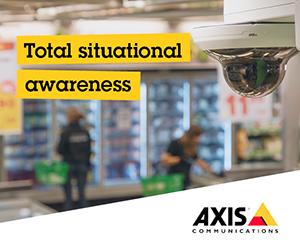INDUSTRY FOCUS
Will free sanitary wear create period drama for retailers?
Presenting vouchers or having to provide ‘proof of need’ may offer practical steps or challenges for the introduction of free sanitary wear after Scottish MSPs backed the principle of tackling period poverty by making sanitary products available ‘to all free of charge.’
It will be for the Scottish government to decide exactly how the scheme works, but it must give "anyone who needs them" access to different types of period products "reasonably easily" and with "reasonable privacy".
What this means will be of interest to businesses selling sanitary wear as details are so far thin on the ground.
There are precedents; in the NHS Greater Glasgow and Clyde area, for example, anyone who wants free condoms can ask for them in locations including GP surgeries, pharmacies and colleges and universities, or, alternatively fill out a request on a card so they do not have to ask verbally.
The new Bill, put forward by Labour's Monica Lennon and introduced on 25th February 2020, says those who want to access the scheme may have to prove their identity or produce a voucher to obtain the product, although in some circumstances the vouchers could be used on behalf of someone else. Products should also be available for delivery or collection.
The scheme will need to be operational within a year of the legislation becoming law, with the government potentially having to compensate organisations that are obliged to provide free products.
All parties backed a bill in its first test in the Holyrood chamber.
However, some warned there was a "huge amount of work to do" to amend the bill to make it deliverable and affordable.
Ministers had originally opposed the plans but changed their position after coming under pressure from campaigners.
The government is expected to put forward a raft of amendments to address their "significant" concerns about the legislation, including the estimated £24m annual cost of implementing it.
Ms Lennon said she was "thrilled" to have support "from right across civic Scotland, from girl guides, trade unions, anti-poverty charities and many individuals who have had their own lived experience of period poverty and know what it is like not to have access to products when they need them".
She told MSPs that "access to period products should be a right and available to all" and pledged to work with other parties to make sure the proposals are deliverable.
Communities Secretary Aileen Campbell said the proposed costs of the scheme had been dramatically underestimated, saying it would take "a whole lot of hard work and endeavour to make sure we can get something that is fit for purpose".
She added: "Parliament will now need to pull out all the stops and work hard collectively and collaboratively."
This was echoed by Tory MSP Graham Simpson, who said there was a "huge amount of work to do" to knock the bill into shape.
At present tampons, pads and some reusable products are funded in schools, colleges and universities.
The Scottish government provided £5.2m funding to support this. Another £4m was made available to councils so the roll-out could be expanded to other public places, and another £50,000 for free provision in sports clubs.
The move came after a survey of more than 2000 people by Young Scot, found that about one in four respondents at school, college or university in Scotland had struggled to access period products.
Meanwhile, about 12 per cent of respondents to research by Plan International said they have had to "improvise sanitary wear".
In England, where Parliament has just voted to provide free sanitary wear in schools, many campaigners want to take stronger action against the taboo of period poverty.
This followed a supermarket warning to shoppers browsing tampons that thieves “risk arrest” and encouraged people to report anyone stealing to “help us keep the community safe”.
The signs received backlash from equality campaigners, who said women should not be blamed for lacking money to pay for sanitary products.





